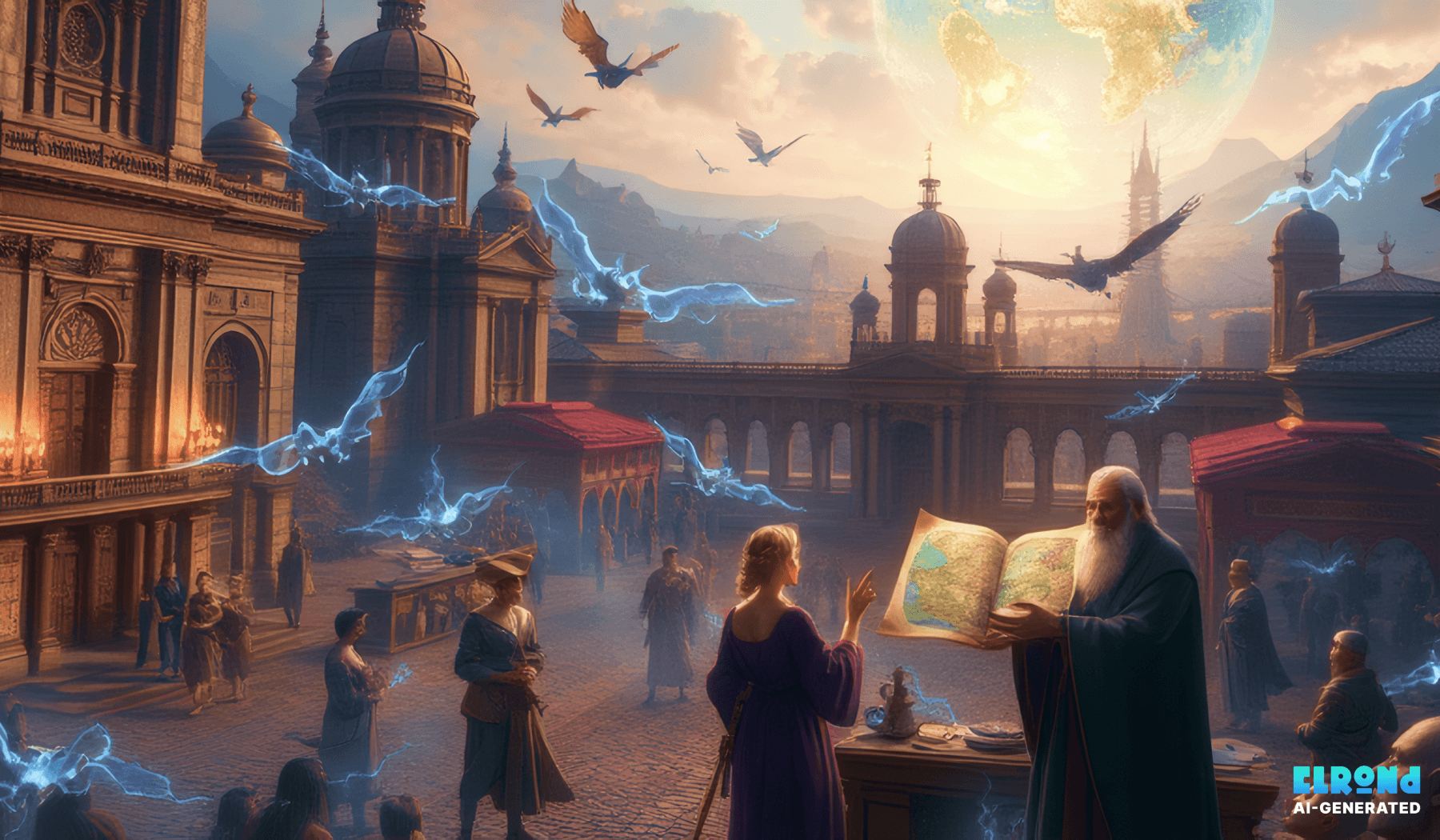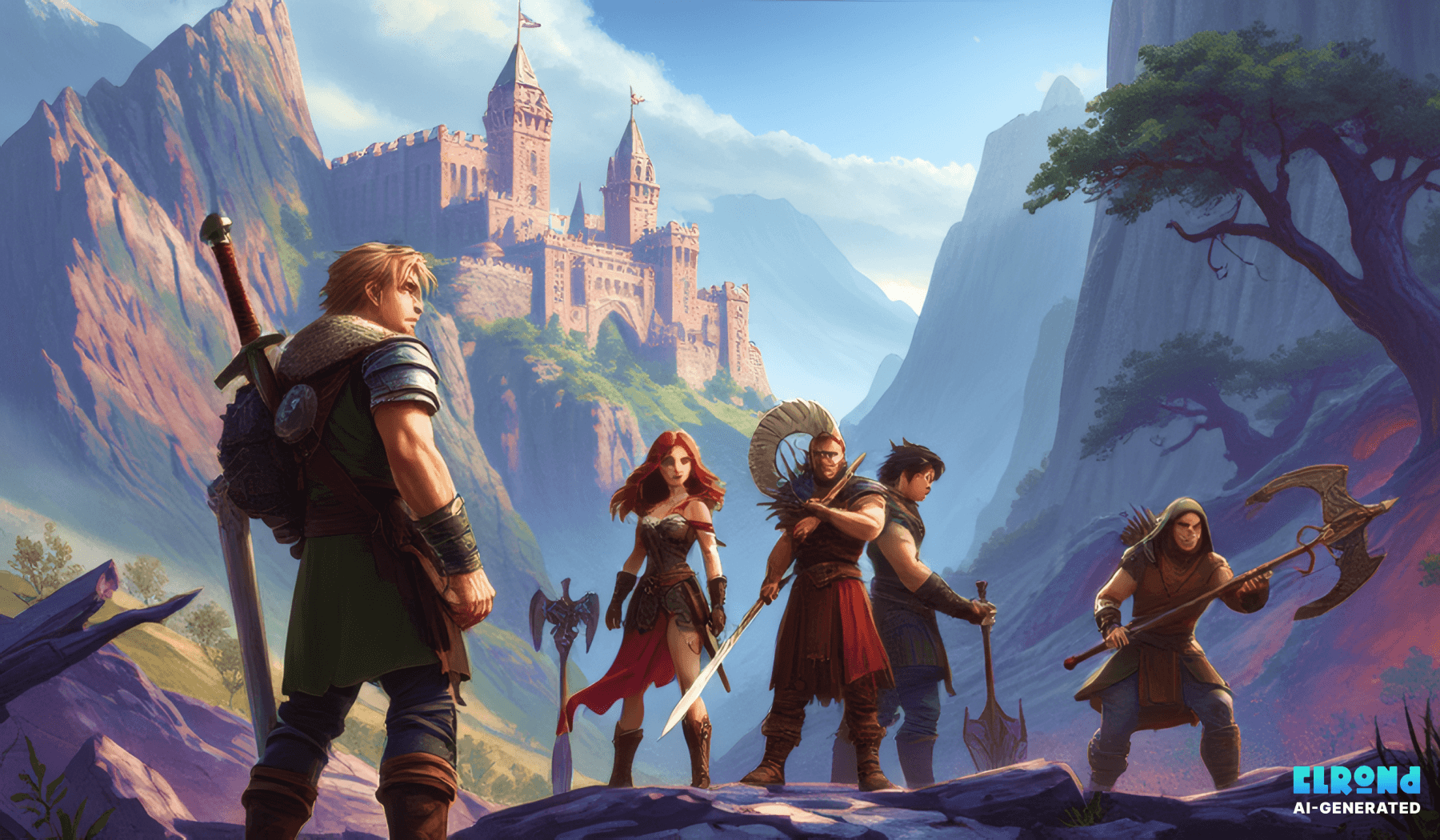Alternate history and fantasy blend to reimagine pivotal moments in history.
Alternate history, a genre that imagines a world where key events unfolded differently, has long been a fertile ground for speculative fiction. When paired with the rich, imaginative world-building of fantasy, alternate history becomes an even more compelling tool for reimagining the past and exploring the "what-ifs" of history. In this article, we’ll dive into how fantasy elements can enhance alternate history narratives and provide new perspectives on pivotal moments in time.
1. Magical Revolutions: What if Magic Changed History?
One of the most intriguing ways fantasy can reshape alternate history is by introducing magic into historical events. Imagine if, during the American Revolution, magic had been discovered and wielded by either side. The outcome could have drastically changed the course of history. In fantasy-infused alternate history, magic can function as a leveler of power, granting extraordinary abilities to individuals or groups, which might shift the balance of geopolitical conflicts. The presence of magic could turn traditional history on its head, allowing for entirely new power structures to emerge.
For example, what if the great military leaders of the Napoleonic Wars had access to magical tools or armies of enchanted beings? This would not only alter the military strategies but could also change the very nature of diplomacy, alliances, and war itself.
2. Fantasy Empires and Alternate Worlds
Another fascinating angle is the creation of alternate historical empires through fantastical means. Take the Roman Empire, for instance—what if their empire had been built upon the discovery of a mysterious, ancient magical artifact that granted them unparalleled strength and longevity? Instead of collapsing in the 5th century, Rome could have thrived into the modern era, a colossal empire underpinned by both military might and magical prowess.
In works like The Years of Rice and Salt by Kim Stanley Robinson, alternate history is paired with speculative elements like reincarnation, leading to a world where different cultures rise to power in unexpected ways. The blending of fantasy with alternate history allows for the formation of “what could have been” scenarios, presenting worlds where mystical forces drive civilizations forward in radically different ways than we know from our own history.
3. Magical Technology and the Industrial Revolution
What if the Industrial Revolution had been propelled not by steam engines and factories, but by alchemical processes and magical technologies? Imagine a Victorian era where sorcery drives everything from transportation to communication. Instead of coal-fueled trains, perhaps magical creatures or enchanted vessels could have been used to travel across continents. The introduction of such technology could not only revolutionize transportation and industry but could also have led to different kinds of social structures.
In an alternate history where magic supplants industrial progress, society could evolve differently, with the power dynamics shifting based on the control of magical resources. In such a world, instead of wealthy industrialists, we could have powerful magical families controlling the flow of energy, or secret societies of wizards manipulating global events from the shadows.
4. Fantasy’s Role in Defining Alternate History’s Politics
Politics in alternate history can also be influenced by fantasy elements. Imagine a world where the divine right of kings is not just a political claim but a literal truth—where monarchs are believed to be chosen by gods or granted magical powers that solidify their rule. This could lead to a completely different political structure, where the people are not merely subjects but actively worship and support their monarchs as divine beings.
In works like The Broken Earth trilogy by N.K. Jemisin, political structures are shaped not only by social divisions but by the raw power of the Earth itself, manifesting as magical forces that influence everything from governance to war. These kinds of works show how fantasy can introduce new power dynamics into alternate history, often adding layers of complexity to characters’ relationships with authority, power, and destiny.
5. Fantasy Monsters Shaping History
Perhaps one of the most fun aspects of combining fantasy and alternate history is the introduction of mythological creatures and beings that play active roles in shaping the course of history. Imagine the Vikings, not only as fierce warriors but as battlers against fantastical beasts such as dragons or trolls that threatened their land. What if these creatures played a role in the exploration of the New World, perhaps providing an unexpected advantage or presenting an additional obstacle to European explorers?
In The Iron Dragon's Daughter by Michael Moorcock, the story combines fantasy with historical elements, where dragons and other fantastical creatures play a significant part in the social and political structure. By reimagining these creatures in the context of historical settings, the narrative opens up the possibility for different kinds of global interaction and conflict.
6. Fantasy as a Tool for Reinterpreting Cultural Identity
Fantasy can also help in reinterpreting historical cultures. In alternate history, entire civilizations could have been shaped differently by the introduction of fantastical beliefs, gods, or spiritual practices. For instance, what if ancient Egypt had been ruled by an immortal pharaoh, or if the Aztecs had discovered a magical artifact that enabled them to conquer all of the Americas? Fantasy allows for the creation of histories where the cultural identities of civilizations are enhanced or even redefined by mystical or magical forces.
In The Long Way to a Small, Angry Planet by Becky Chambers, space-faring societies are built on the foundations of cultures that span galaxies, with each world and people carrying their own myths, stories, and magical beliefs. This allows readers to explore how fantasy can reimagine not only the past but the very essence of identity, heritage, and tradition.
Conclusion: Fantasy and Alternate History's Endless Possibilities
The integration of fantasy into alternate history opens up endless possibilities for how we can reinterpret and reimagine the past. By weaving elements of magic, mythical creatures, and supernatural forces into historical events, writers can create vivid, thought-provoking worlds that challenge our understanding of history and its potential future. Whether it’s by rethinking the role of magic in revolutionizing societies, introducing fantastical beasts into the narrative of exploration, or creating magical technologies that change the course of industrialization, fantasy gives us the tools to dream up a world where anything is possible—where the past, with all its imperfections, can be remade into something more wondrous and incredible than we ever imagined.
The beauty of fantasy-infused alternate history lies in its ability to make the impossible seem possible, and to offer readers a fresh perspective on the way history could have unfolded. It’s a reminder that even the past, with all its tragedies and triumphs, is malleable in the hands of a skilled storyteller.


